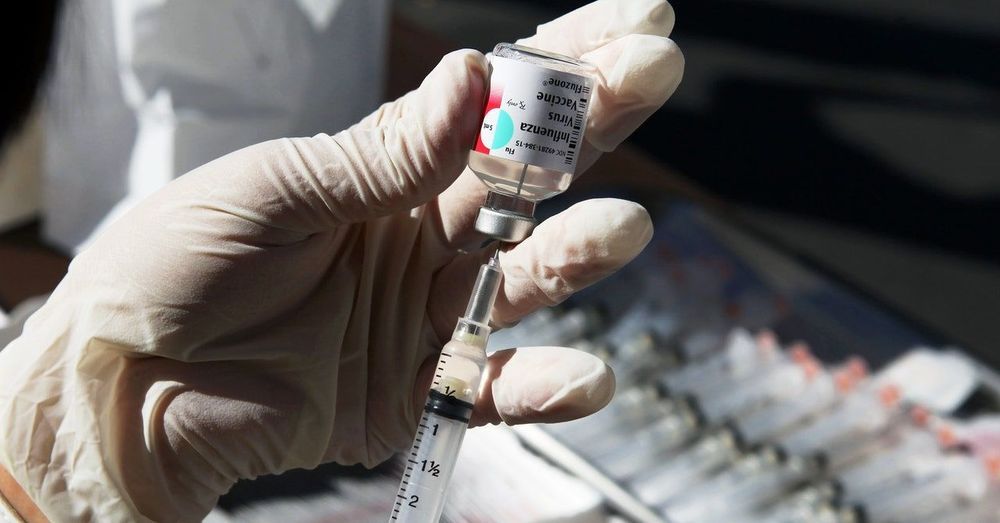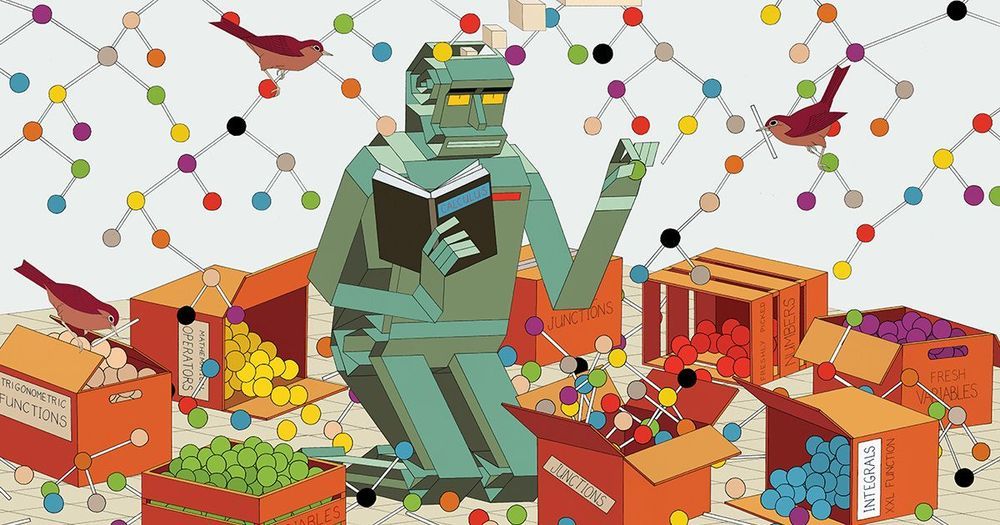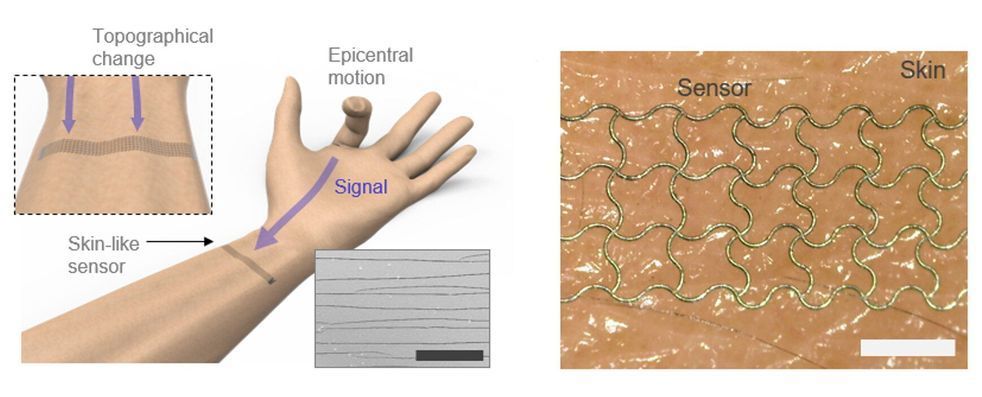The robot could end up being an ideal ranch hand that acts like a sheep dog but doesn’t need to be fed.
Category: robotics/AI – Page 2,132

US Navy deploys ODIN counter-UAS laser
The US Navy has installed its first Optical Dazzling Interdictor, Navy (ODIN), a laser weapon designed to counter unmanned aerial systems (UAS).
The first ODIN laser system was installed on the Arleigh Burke-class guided-missile destroyer USS Dewey during a recent dry-docking.
Unlike hard-kill laser systems already deployed by the US Navy on vessels, ODIN uses a dazzling laser to confuse systems sensors and cameras or, in manned systems, potentially cause glare in a pilot’s vision.

The U.S. Army Is Creating Artillery Rounds Guided By AI
The U.S. Army is working on a new artillery shell capable of locating enemy targets, including moving tanks and armored vehicles. The shell, called Cannon-Delivered Area Effects Munition (C-DAEM), is designed to replace older weapons that leave behind unexploded cluster bomblets on the battlefield that might pose a threat to civilians. The shell is designed to hit targets even in situations where GPS is jammed and friendly forces are not entirely sure where the enemy is.


OBSBOT Tail Self-Tracking AI Camera Review
Circa 2019
The OBSBOT Tail is an AI camera that has the ability to track and record a subject without you having to do anything. A self-tracking camera can be used for a wide variety of applications. It’s important to note that the unit I am reviewing is not the shipping version, but a lot of the features are still working. The OBSBOT Tail is expected to start shipping in April.
OBSBOT Tail
![]()

A deep-learning-enhanced e-skin that can decode complex human motions
Researchers at Seoul National University and Korea Advanced Institute of Science and Technology (KAIST) have recently developed a sensor that can act as an electronic skin and integrated it with a deep neural network. This deep learning-enhanced e-skin system, presented in a paper published in Nature Communications, can capture human dynamic motions, such as rapid finger movements, from a distance.
The new system stems from an interdisciplinary collaboration that involves experts in the fields of mechanical engineering and computer science. The two researchers who led the recent study are Seung Hwan Ko, a professor of mechanical engineering at Soul National University and Sungho Jo, a computing professor at KAIST.
For several years, Prof. Ko had been trying to develop highly sensitive strain sensors by generating cracks in metal nanoparticle films using laser technology. The resulting sensor arrays were then applied to a virtual reality (VR) glove designed to detect the movements of people’s fingers.
Microsoft OpenAI computer is world’s 5th most powerful
Microsoft announced Tuesday that it has built the fifth most powerful computer on Earth.
Packed with 285,000 processor cores and 10,000 GPUs, the supercomputer was built in collaboration with San Francisco-based artificial intelligence research organization OpenAI. Microsoft announced its partnership with OpenAI last year and contributed $1 billion to the project.
The computer will operate as part of Microsoft’s Azure cloud computing system. The technology giant expects to achieve significantly better results from a single massive supercomputer system than from large numbers of smaller, isolated models.
Researchers build a fast-moving jumping soft robot
Buckling, the sudden loss of structural stability, is usually the stuff of engineering nightmares. Mechanical buckling means catastrophic failure for every structural system from rockets to soufflés. It’s what caused the Deepwater Horizon oil spill in 2010, among numerous other disasters.
But, as anyone who has ever played with a toy popper knows, buckling also releases a lot of energy. When the structure of a popper buckles, the energy released by the instability sends the toy flying through the air. Now, researchers from the Harvard John A. Paulson School of Engineering and Applied Sciences (SEAS) and Harvard’s Wyss Institute for Biologically Inspired Engineering have harnessed that energy and used buckling to their advantage to build a fast-moving, inflatable soft actuator.
The research is published in Science Robotics.
Pulse eVTOL concept drops its cabin onto an autonomous car chassis
Here’s one we missed from several months ago: Brazilian eVTOL innovator EmbraerX put forth a fun video showing how a multi-mode 3D transport system might work, with an eVTOL air taxi carrying a detachable glassed-over cabin that it delivers straight onto a self-driving car chassis.
The coming new breed of eVTOL air taxis are nearly all, at this stage, designed to work as part of a multi-mode transport scheme. The flying taxis themselves will travel from skyport to skyport, meaning you’ll need other means to get yourself to the takeoff point and something else again at the other end for the last mile. It’s simply not practical to expect eVTOLs to drop you off right at your destination.
Companies like Uber are salivating at the thought of being able to offer the whole service as a single sale, co-ordinating a car at each end to minimize travel time, but that starts looking like a bit of an annoyance when you consider the hope is that people will use these things for the daily commute. Four taxis and two eVTOLs every day is a pain.